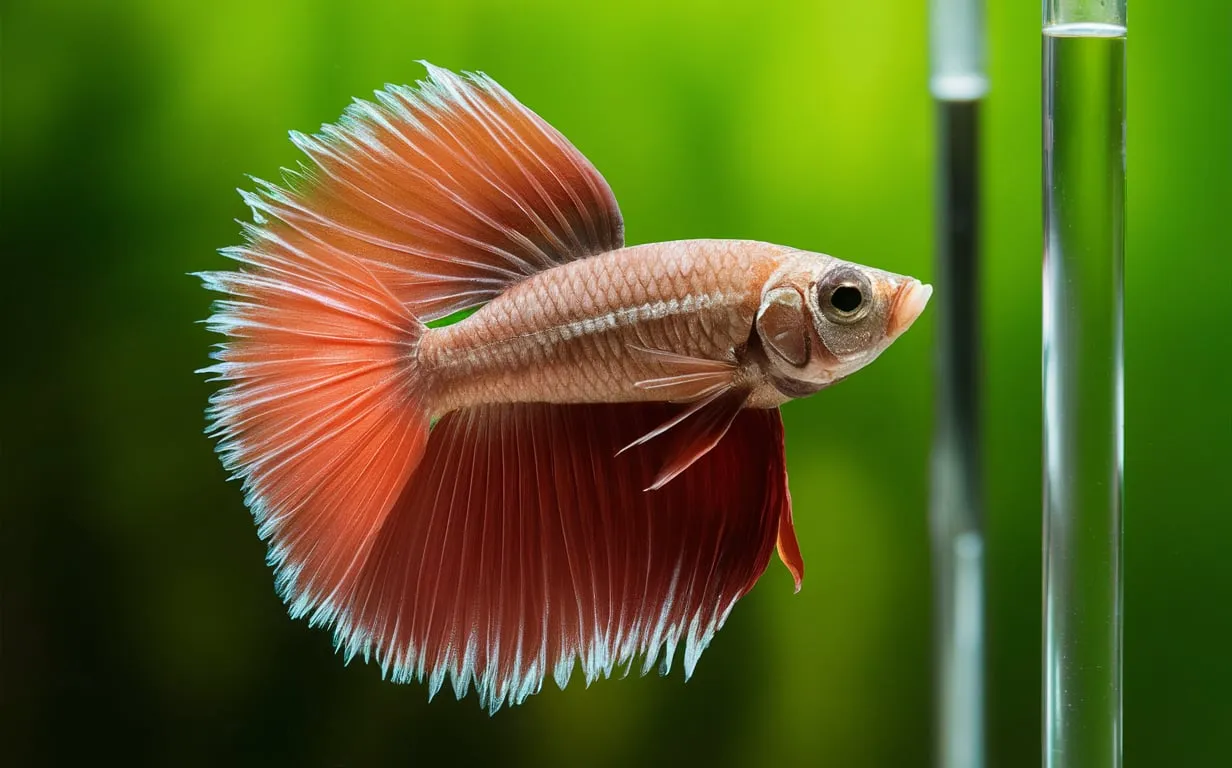Betta Fish, also known as Siamese fighting fish, have become one of the most popular aquarium inhabitants due to their vibrant colors, unique personalities, and relatively low maintenance requirements. However, one crucial aspect of their care that is often overlooked is the importance of maintaining the correct water temperature. In this comprehensive guide, we’ll explore the optimal betta fish water temperature range and provide tips on how to ensure your aquatic friend remains healthy and happy.

Ideal Betta Fish Water Temperature
Betta fish are tropical fish, which means they thrive in warm water temperatures. The ideal water temperature for betta fish typically falls within the range of 78°F to 82°F (25.6°C to 27.8°C). This temperature range provides the perfect environment for bettas to flourish, supporting their metabolism, immune system, and overall well-being.
Factors Affecting Betta Fish Water Temperature
Several factors can influence the water temperature in a betta fish tank. Understanding these factors can help you maintain the optimal conditions for your betta:
Tank Size
The size of the aquarium or tank can affect the water temperature. Smaller tanks tend to experience more significant temperature fluctuations, as they have a smaller volume of water to maintain a stable temperature. Larger tanks, on the other hand, are generally easier to keep at a consistent temperature.
Heating System
The type of heating system you use in your betta tank can also impact the water temperature. Submersible heaters are a popular choice as they provide reliable and efficient heating directly in the water. It’s essential to choose a heater with an adjustable thermostat to fine-tune the temperature as needed.
Room Temperature
The ambient temperature of the room where your betta tank is located can also influence the water temperature. If the room is too cool, the water temperature may drop, and you’ll need to use a heater to maintain the ideal range. Conversely, if the room is too warm, you may need to consider additional cooling methods, such as fans or chiller units.
Lighting
The type and intensity of lighting in your betta tank can also affect the water temperature. Bright, intense lighting can cause the water to heat up, while lower lighting levels may allow the water to cool down.
Monitoring and Maintaining Betta Fish Water Temperature
To ensure your betta fish thrive, it’s crucial to monitor and maintain the water temperature within the ideal range. Here are some tips to help you achieve this:
- Use a reliable aquarium thermometer: Invest in a high-quality, submerged thermometer to accurately monitor the water temperature in your betta tank.
- Adjust the heater as needed: If the water temperature falls outside the ideal range, make small adjustments to the heater’s thermostat to bring it back within the optimal temperature.
- Perform regular water changes: Partial water changes with water of the same temperature can help maintain a stable temperature in the tank.
- Consider a temperature controller: A temperature controller is a device that automatically regulates the heater to maintain a consistent water temperature, taking the guesswork out of temperature management.
- Avoid sudden temperature fluctuations: Sudden changes in water temperature can stress betta fish, so make any necessary adjustments gradually to allow the fish to acclimate.
How Can I Safely Acclimate My Betta Fish To A New Temperature?
Here are some tips for safely acclimating a betta fish to a new temperature:
- Float the closed fish bag in the new tank for 15-30 minutes. This allows the water temperature in the bag to gradually match the temperature of the new tank.
- Slowly add small amounts of new tank water to the fish bag over the course of 30-60 minutes. This helps the fish adjust to the new water parameters gradually.
- Avoid making large, sudden temperature changes. Bettas are sensitive to rapid temperature fluctuations. Aim to match the new tank temperature within 2-3°F (1-2°C) of the previous water.
- Use a reliable aquarium thermometer to monitor the temperatures closely during the acclimation process.
- If the temperature difference is more than 4°F (2°C), consider using a tank heater or cooler to slowly bring the new tank water to the desired temperature over several hours.
- Be patient and go slowly – rushing the acclimation process can stress the betta and potentially make it sick.
The key is to make the transition as gradual and stress-free as possible for the betta. Taking the time to properly acclimate it will help ensure a healthy, happy fish.
Conclution
By understanding the importance of betta fish water temperature and implementing the necessary measures to maintain it, you can ensure your aquatic companion remains healthy, active, and vibrant. Providing the right environmental conditions is crucial for the long-term well-being of your betta fish.

Related Posts
Female Betta Care: A Comprehensive Guide
Understanding Betta Fish Water
What Are Clamped Fins On Betta?